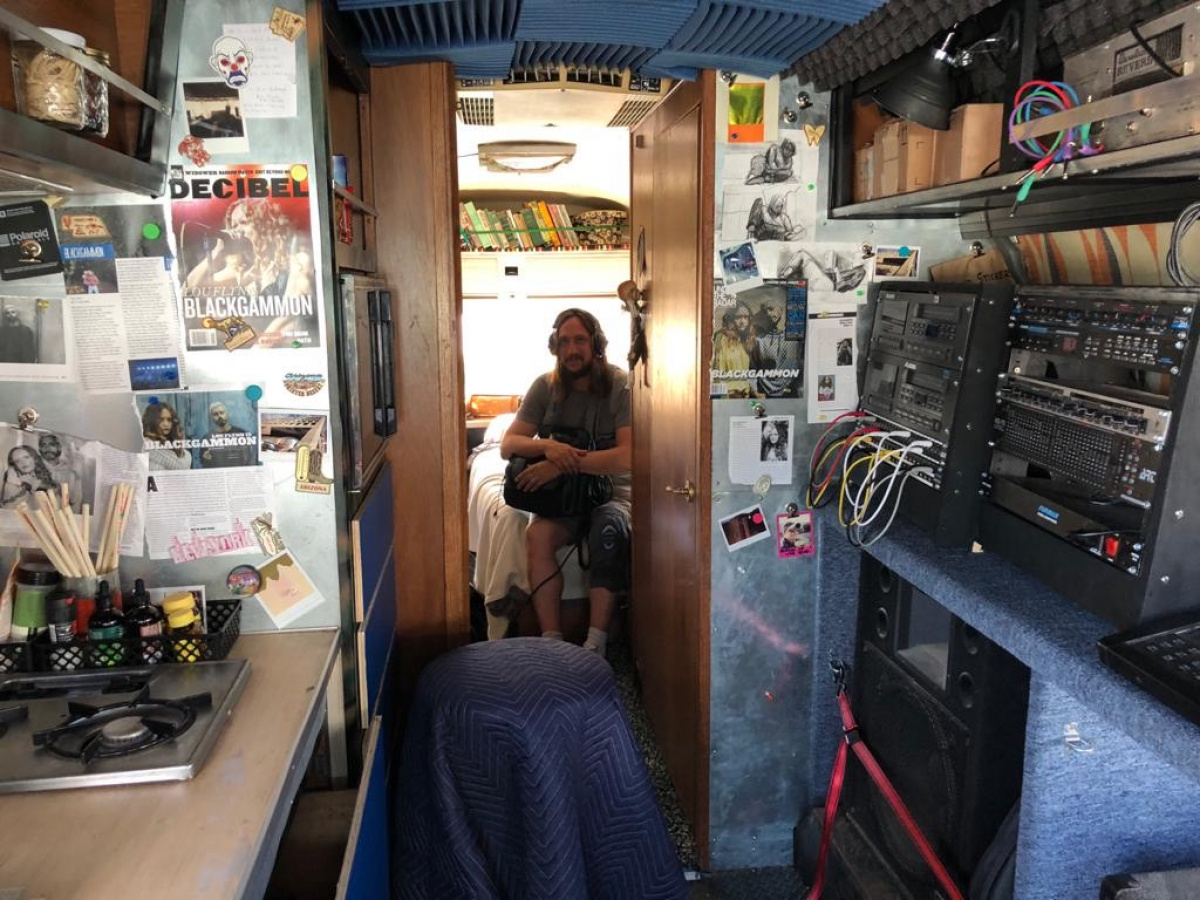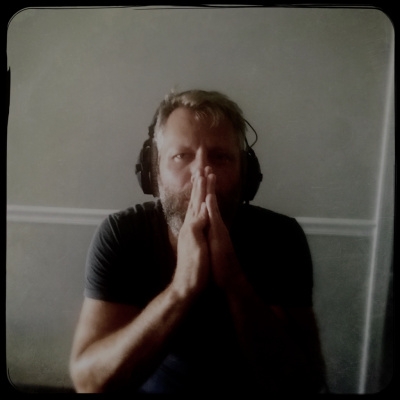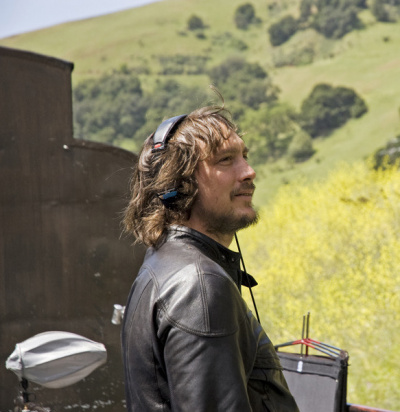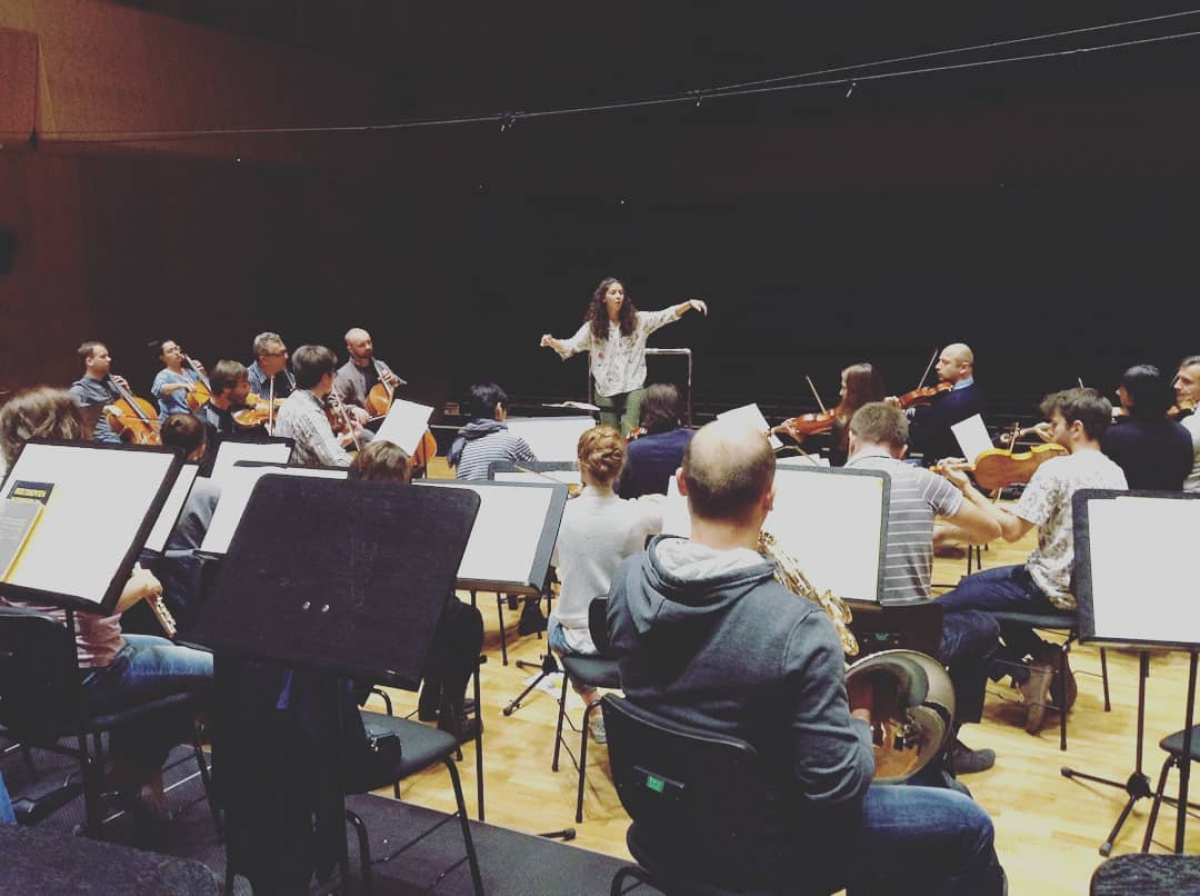
«Cinema Is Always 10 Years Behind Music»
Sound designer Nicolas Becker won the Oscar for Best Sound for his adventurous sonification of a deaf person’s perception in the feature film Sound of Metal. Norient talked to him about the relevance of sound in film, and its possibilities to create new narratives that are more than just about the script.
The first feature film of Darius Marder, Sound of Metal, begins with a loud heavy-metal concert. The sound waves daze our ears for a few moments before giving way to silence. A terrifying, painful silence that follows drummer Ruben (Riz Ahmed) in his struggle to accept his new reality. When Ruben gradually loses his hearing, one enters a different world, experiencing his hearing loss gradually. For his meticulous sonification of Ruben’s various mental states, sound designer Nicolas Becker won the Oscar and Bafta for best sound in 2021. Here is an interview about the growing relevance of sound in film, the internal cinema of the mind, and the role of sound to create a more complex movie.
[Chafic Tabbara]: Let’s start by talking about sound in film. The majority of filmmakers in the Arab world or even in Europe and the United States don’t give great importance to the place of sound and what it can add to film. What do you think?
[Nicolas Becker]: It’s a common misconception in the past twenty years that sound is expensive. In reality, it is a cultural issue. Those who couldn’t access the utilized audio technology didn’t develop their own tools. Nevertheless, I’ve always had a good experience working with Arab filmmakers as I find them open to the possibilities of a good workflow. Today, it’s less expensive to find the rights tools for working with audio. In France, we face the same problem due to the culture of «auteur films». To them, everything is related to the script and very few give any real importance to sound. It is often considered as an ornamental detail. In my opinion it’s first and foremost a production problem, as the money is readily available from the «CNC», so producers don’t put in the effort to think about the general shape of the film or about a possible workflow that includes sound. Instead of being flexible depending on the need of the film, they follow the same pattern whether the film costs three million or one million: Six weeks for sound design and sound editing and two weeks for sound mixing.

[CT]: Before we discuss the sound in «Sound of Metal», let’s talk about silence. How were you able to create this deafening silence?
[NB]: It’s a matter of dynamics. The first scene of the film is crazy; its sound is so loud and strong. This scene creates a kind of introduction to the general level of the film that paved the way to experiencing silence later on. It’s the same as repeatedly hitting your hand with a hammer and then stopping to feel a sudden great relief.
[CT]: Was the method of utilizing the sound and its role in the film written in the script?
[NB]: What’s interesting is that I met with the director one year before the shoot and we spent a week discussing the different aspects of sound in the film. Six months later, we organized a meeting with the director of photography (Daniël Bouquet) in which we attempted to create the sonic and visual perspective of the film. The director is a wonderful writer and musician, we worked closely together. I was present on set and the producer was amazing, pushing us to experiment with sound. When you don’t have a lot of money and you want to create a good soundtrack, it is crucial to create a close collaboration between the sound designer, producer, director, cinematographer, and actor.
[CT]: Was Ruben (Riz Ahmed) in the film able to hear what we hear before and after the operation? And how were you able to simulate the experience of hearing loss and what a person hears when they go through it?
[NB]: We created an earplug through which we were able to send pink noise into the ears of Riz Ahmed to simulate hearing loss. It was very interesting because in a way, when you experience something through your body, you interact with it. Things were no longer intellectual but written in the body memory. Even if Riz didn’t use the earplug the whole time, he experienced it. The actor did the real work; if you don’t have an amazing performance, you can’t do it. We were able to do it thanks to Riz. He spent a lot of time in a real deaf community, and there he learned to increase his attention. Through his acting, he was able to communicate what he is focusing on whether he is trying to get information from the outside of merely processing internal thoughts. I tried to replicate this. I recently read a book called Internal Cinema by the neurologist Lionel Naccache. He suggests that we are the main actor in our lives and through cognitive thinking, we are the main filmmakers. The film is based on Ruben’s (Riz Ahmed) perspective and is very similar to what we experience in real life. Therefore, the audience is able to create a strong bond with him, especially when he becomes deaf. When I was with Riz, I spent a long time recording his inner sound by using specific microphones that you can put on the body. What we actually hear most of the time in the film is the inner sound of Riz Ahmed, the sound through tissues and bones.

[CT]: To you personally, who worked as a sound designer with many directors such as Roman Polanski, Danny Boyle, Gaspard Noe, and others… and on many important films like Gravity by Alfonso Cuaron, Arrival by Denis Villeneuve, Ex-machina and others; what makes this film different?
[NB]: I worked on a few films where the producer and director allowed me to go as far as I wanted. I am happy with all the work I’ve done, but what I really want is to be able to experiment and to work freely.
[CT]: What about the future of sound in cinema? There is a big question mark over the word «Cinema» now because of the pandemic, the streaming platforms... But what about sound? Don’t you think there is a revolution today in the way we conceive of sound in cinema?
[NB]: Yes. In the 1990s and in the 2000s, the original score was so noisy, so full and performative that you would watch the film and feel detached from it. People feel today that they went too far in this direction and need to come back to something more human. With the evolution of music, many are listening to tracks that contain field recordings, Foley, acoustic instruments, etc. And this is a music that is more open-minded. I think that cinema is always 10 years behind when compared to music. I think the time has come to really penetrate the world of cinema, and that’s a challenge that new directors and young sound designers were able to overcome, as they are more collaborative and able to dilute the idea of hierarchy while the absolute power of the producer and director fades.
[CT]: There is a debate between the audience and the critics around the ending of the film. Some say they would have liked the film to end in the concert and not how it actually ended, in the street.
[NB]: Ruben (Riz Ahmed) is not representative of the whole deaf community, just like any other character is not representative of the non-deaf community. If that’s what the audience thought then they didn’t understand the subject matter of the film, which is about resilience and the ability to grow. The film is not just about being deaf or not. Deaf people create their own community and as Joe (Paul Raki) says in the movie, hearing loss is not something that needs to be cured, and it is the conclusion I would have reached if I were in Ruben’s shoes. I think it’s very human and that’s the reason people like the film. Ruben is not a superhero nor is he a bad guy. He is a fragile person trying to make it work for himself and his life.
[CT]: In your Oscar acceptance speech you valued the human contribution, can you elaborate on that? Especially why you mention the following Fellini quote: «In the history of cinema, beyond the evolution of styles and techniques, what stays embodied in films is their human vitality…»
[NB]: The rest of this quote is «and whoever enjoys it receives a charge of energy, something pulsing, mysterious and vibrant». This is what Sound of Metal is about, and that’s why I tried to thank as many people as I could during the speech. The work on sound is not about money, it’s a question of will. Some people, when they write the script they write only dialogue while others describe the images and wardrobe and mood and music and sound. The financing system of cinema created confusion by limiting itself to pictures and dialogue. But since the beginning of the 1930s, filmmakers started writing sound and started questioning themselves about it. It is important that people remain open-minded about this. To create a more complex cinema, this is how you make it more immersive. Life is extremely complex and unique and if you are able to create a cinema that holds this potential, you would have a cinema in every sense of life.
Biography
Published on May 05, 2021
Last updated on April 09, 2024
Topics
A generative practice that promotes different knowledge. One that listens is never at a distance but always in the middle of the sound heard.
Does a crematorium really have worst sounds in the world? Is there a sound free of any symbolic meaning?
What is «Treble Culture»? How does what one hears affect what one sees?







